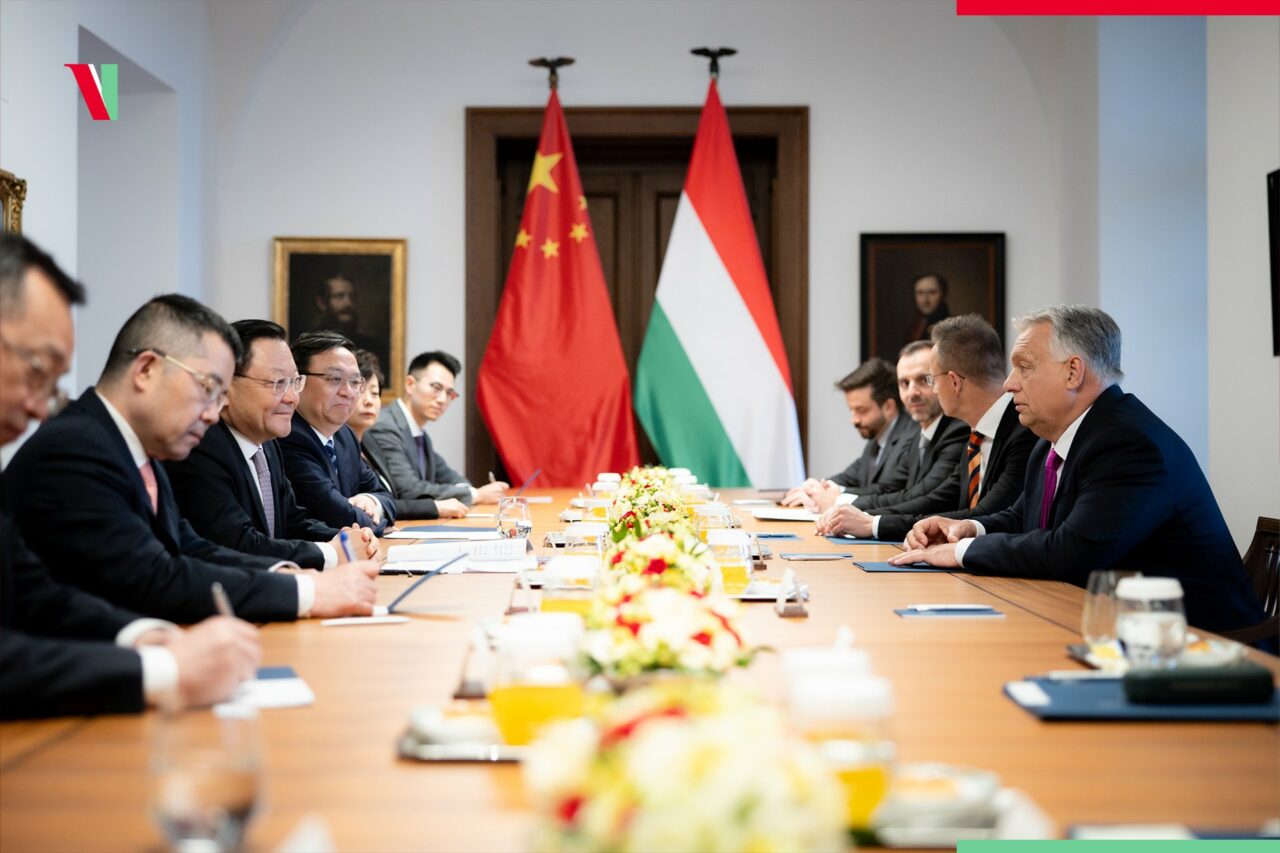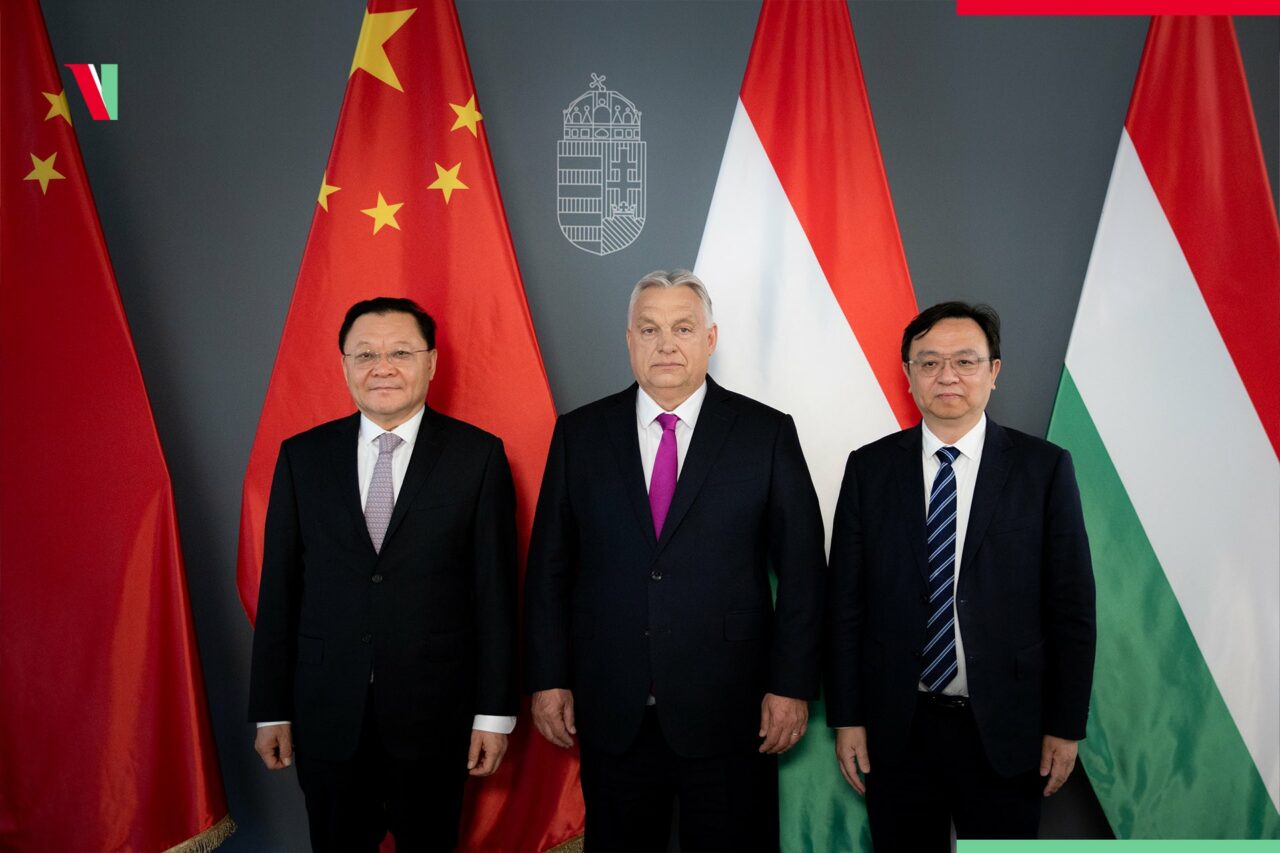BREAKING – Chinese BYD to establish European HQ in Hungary! – UPDATED

Chinese vehicle maker BYD will establish its European headquarters in Hungary, founder and chairman Wang Chuanfu said after a meeting with Prime Minister Viktor Orban in Budapest on Thursday.
HERE you may read the Chinese AI-generated version of our article.
You may read our previous article in the issue HERE.
Chinese BYD to establish European HQ in Hungary
Wang acknowledged Hungary as one of the world’s automotive industry centres, with well developed infrastructure and an established industrial base, and said putting the company’s European HQ in the country was a milestone for BYD and tangible proof of Chinese-Hungarian cooperation in the framework of the Belt and Road Initiative.

Wang said the establishment of BYD’s European HQ in Hungary would create around 2,000 jobs. The HQ will handle sales and after-sales service, vehicle certification and testing, and model planning and function development, he added.
Wang Weizhong, the governor of Guangdong Province, where BYD is based, said the region accounted for about 10pc of bilateral trade between China and Hungary. Companies from the province have made a number of investments in Hungary, providing the livelihoods for around 10,000 people, he added.

PM Orbán: Cars of the future to be made in Hungary, too
The cars of the future will be made in Hungary, too, Prime Minister Viktor Orbán said after the signing of a strategic cooperation agreement between the government and Chinese vehicle maker BYD in Budapest on Thursday. Orbán noted that Hungary’s government had earlier taken a strategic decision to involve the country’s industry with the electromobility transition. He acknowledged that there would be “peaks and troughs” as the new technology was adopted, but said Hungary would not “miss out” on the switch.

He said Hungary needed partners to enter the age of electromobility and highlighted the country’s strategic cooperation with China, the electromobility technology leader. He added that Hungarian-Chinese ties were now more intensive than ever before.
Orbán noted that Hungary had earlier joined Hungary’s Belt and Road Initiative and highlighted an invitation by Chinese President Xi Jinping during a visit to Budapest for Hungary to participate in the modernisation of China’s economy.

Strategy of connectivity
He said Hungary had adopted a strategy of connectivity in the global economy and pursued “intensive and pragmatic” ties with all of the global political power centres. If Hungary is to achieve its economic goals, the country needs to keep its ties with China at the strategic level and develop them further, he added.
Orbán said the government aimed to make Hungary a “meeting point” for investment, capital, technology and trade between the East and the West.
He said Hungary had always been opposed to European Union tariffs on Chinese products and had pressed for a return to economic cooperation based on mutual respect.

Bilateral trade between Hungary and China has doubled in the past ten years, while China has become one of the top investors in Hungary, he said. Chinese investments have become an “indispensable engine” for Hungary’s economic growth, he added.

Additional China-Hungary joint projects
He also pointed to big infrastructure projects Hungary is working on together with China, including the upgrade of the Budapest-Belgrade rail line, the V0 ring railway around the capital and a crude pipeline between Serbia and Hungary.
In addition to building its manufacturing plant in Szeged (SE Hungary), Orban said BYD would bring a development centre to Hungary that would create 2,000 jobs for highly trained local professionals, mostly engineers.

UPDATE: 200,000 Chinese tourists in 2024
Minister of Foreign Affairs and Trade Péter Szijjártó met with Wang Weizhong, the governor of China’s Guangdong Province, in Budapest on Friday. After the meeting, Szijjártó acknowledged the local investments of Guangdong-based companies, such as BYD, Eve Power and Sunwoda, which have created over 10,000 jobs. He also highlighted ties between universities in Hungary and Guangdong, including partnerships with Corvinus University and the Hungarian University of Sports Science.
Szijjártó said direct flights between Budapest and two big cities in Guangdong had contributed to the big increase in the number of Chinese visitors to Hungary last year. Over 200,000 Chinese tourists came to Hungary in 2024, double the number in 2023.
Read also:
- One of the wealthiest and most powerful Chinese figures is in Budapest
- Chinese BYD signs cooperation agreement with vocational training, higher education institutions







